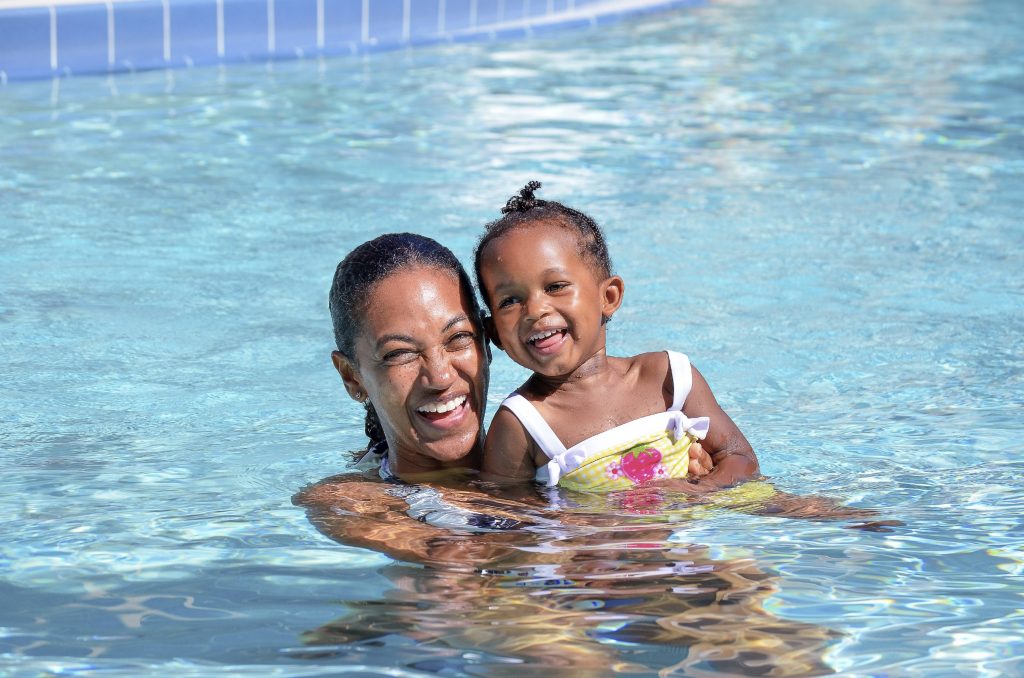-
Mayo Clinic Q and A: Swimming safety tips

DEAR MAYO CLINIC: My family lives in a community with several public pools. My children love the water and always want to swim, especially in the summer. We recently had lunch at one of the pools. My youngest child complained of a stomachache, and then she vomited and had diarrhea after we got home from the pool. Growing up, my mom always made me wait at least 30 minutes after I ate to swim. Did eating lunch before swimming cause her symptoms, or could she have gotten ill from the water? How can I keep my family safe while swimming?
ANSWER: Swimming at a pool is a fun way to burn some energy and cool off on a hot summer day. While a pool provides great social and recreational entertainment, you need to be mindful of some things when visiting a pool to maintain optimal health and wellness.
Most importantly, before you send your children to the pool, make sure they know how to swim and always will be supervised by a responsible adult. Drowning remains a leading cause of unintentional death for people of all ages, especially children under 14, according to the Centers for Disease Control and Prevention. More than 3,900 people in the U.S. die annually from drowning. That's about 11 people per day.
Waiting to swim for 30 to 60 minutes after eating has been advice many parents have given their children for generations. Originally, it was thought that after you eat, blood may be diverted away from your arms and legs to your gut so that you can digest your food easily. Thus, the advice was to wait, since you might get tired or fatigued and be more likely to drown.
It's now known this advice is without scientific basis. While it may not be the most comfortable thing to go for a swim with a full belly, it's not dangerous to routinely enjoy this activity.
Where community swimming pools can become a health problem is if they become contaminated with Cryptosporidium parasites. These microscopic parasites live in the intestines of humans or animals and are shed through stool. Symptoms of Cryptosporidium infections include watery diarrhea, dehydration, lack of appetite, weight loss, stomach cramps or pain, fever, or nausea.
Cryptosporidium infections are highly contagious and are one of the more common causes of infectious diarrhea in humans. But you can protect yourself and your family from becoming ill.
Inquire with your community pool about the cleaning schedule, any testing that is performed on the water, and whether cases of Cryptosporidium or other infections have been reported from people who have recently used the pool. In addition to the risk of Cryptosporidium infection, you would want to avoid swimming in a pool that is not regularly cleaned and the water is not regularly treated.
Consider these other recommendations for avoiding infections from your community swimming pool:
- Don’t swim or let your kids swim if they are sick and have diarrhea. If they have been diagnosed with Crytosporidium, they should wait two weeks after the diarrhea has stopped before returning to the pool. The parasite has been detected in stool up to two weeks after diarrhea has gotten better.
- Rinse off in the shower before and after getting in the pool to remove germs on your body.
- Remind your child to avoid swallowing water from the swimming pool.
- For younger children especially, take frequent bathroom breaks and check diapers in a diaper-changing area — not next to the pool.
- Wash your hands well with soap and water after using the bathroom and changing diapers. Alcohol-based hand sanitizers are not effective against Cryptosporidium.
In most healthy people, the symptoms of this infection will resolve within a couple of weeks without any treatment. The most important thing is to drink plenty of fluids and stay well-hydrated. However, the infection can be more severe and prolonged in people with weakened immune systems or underlying digestive system issues, such as inflammatory bowel disease. People with those conditions should talk to their health care professional to find out whether they need to be tested or treated for Cryptosporidium or other infectious causes of diarrhea. — Dr. Nipunie Rajapakse, Pediatric and Adolescent Medicine, Mayo Clinic, Rochester, Minnesota
****************************
Related Articles
- Consumer Health: Fun in the sun does not have to mean a sunburn published 7/11/22
- Consumer Health: Kids and swimming safety published 5/27/22
- Mayo Clinic Q and A: Ear infections after swimming published 5/16/22
- Swimming for better health and to avoid injuries published 8/13/21
- Should you open your eyes underwater? published 6/30/21
Related Articles







